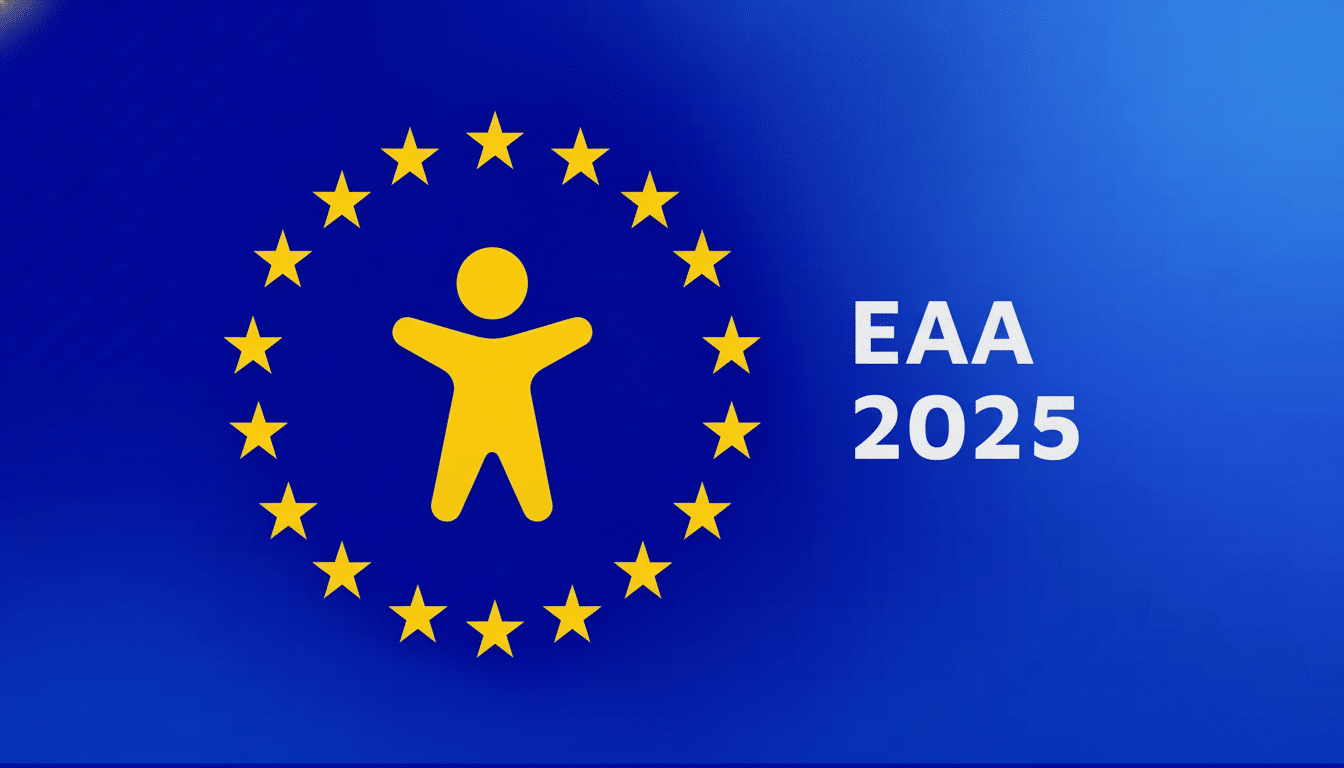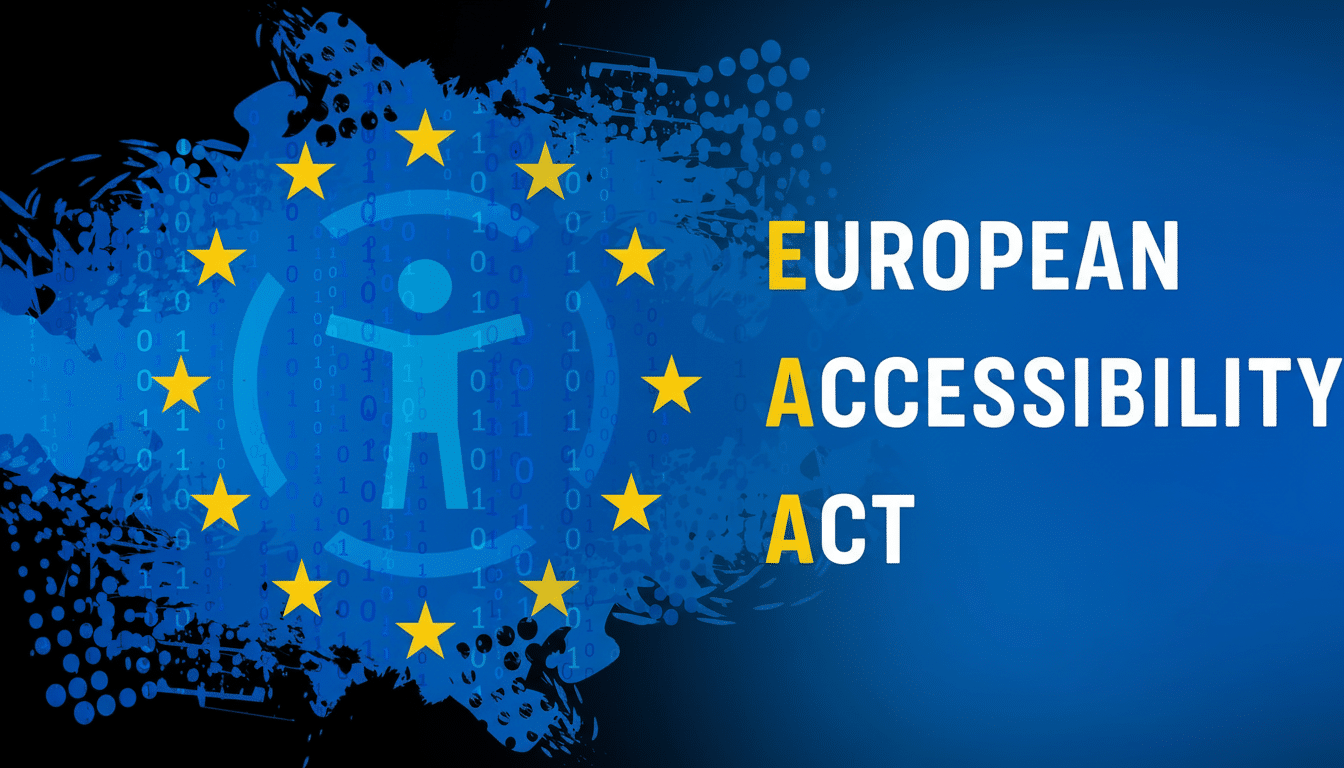Irish startup DevAlly has secured €2 million to assist companies in complying with the far-reaching demands of the European Accessibility Act, moving compliance from “nice to have” to mandatory for anyone selling digital products and services to the EU’s 450 million consumers.
The European Accessibility Act: Why It Changes The Game
The European Accessibility Act (EAA) started applying across the bloc this summer, and broadens accessibility requirements far beyond the public sector to cover private marketplaces, e.g., e‑commerce, banking, media services and transport. New products and services must comply immediately; old ones have until 2030, with a transition period. Penalties and enforcement will also be down to member states, but regulators will have the power to levy fines in amounts similar to GDPR, as well as compel action — making it a kind of GDPR lite for digital teams.
- The European Accessibility Act: Why It Changes The Game
- What DevAlly Actually Delivers for Accessibility Compliance
- Funding, Backers, And Plans Of Expansion
- A Crowded, Underserved Market for Accessibility Tech
- How Companies Can Get Ahead on Accessibility Readiness
- The Bottom Line on DevAlly and the EAA’s Impact

It is based on the EN 301 549 standard and the Web Content Accessibility Guidelines (WCAG), usually at Level AA. The European Commission calculates that there are about 100 million people living with disabilities in the EU, a number that will only grow as Europe’s demographics age. Accessibility is also a market issue: Return on Disability estimates that the global spending power of people with disabilities hovers around $13 trillion, so design that works for all users has a competitive edge.
What DevAlly Actually Delivers for Accessibility Compliance
DevAlly is an automation‑first platform and looks for accessibility barriers in websites and applications, such as low color contrast, missing alt text, keyboard traps, and unlabeled controls. It matches issues to WCAG 2.2 criteria, creates fix roadmaps, and delivers audit‑ready reports that can be shared with procurement teams, regulators or customers.
The company combines automated testing, domain‑tuned language models and human expertise. By applying this combination of inputs with severity, we identify a large portion of common fails that automated tools can find, and experienced auditors/assistive technology users can handle to validate flows, such as checkout or onboarding. And DevAlly’s pitch is not only that its tooling integrates with design systems and CI/CD pipelines, but it catches regressions in development instead of post‑launch — a playbook familiar to security compliance playbooks, too, incidentally.
And beyond scanning, the platform also aggregates customer‑reported issues and prioritizes fixes using both user impact and regulatory risk, tracking this process over time to remediation.
For teams that are already managing security/privacy/reliability SLOs, treating accessibility with the same operational rigor can manage risk better overall and assist increasingly frequent sales motions requiring compliance proof.
Funding, Backers, And Plans Of Expansion
The round was led by Belgian fund Miles Ahead Capital and included participation from European angels, NDRC (National Digital Research Centre), Enterprise Ireland, and MistView (a research lab for the convergence of cloud computing, mobility and commerce). DevAlly, which participated in the NDRC accelerator programme operated by Dogpatch Labs, intends to grow its staff from five to fifteen by year‑end with a focus on Dublin. Visibility from pitch circuits, including a top‑three finish in Slush’s startup competition, helped sign the lead investor, the founders say.

The new money is earmarked for product R&D, deeper integrations with developer workflows, and regional expansion. Although early traction is stronger in Europe because of the EAA, DevAlly says it’s also going after the U.S. market, where procurement requirements at government level and Americans with Disabilities Act litigation keep accessibility on execs’ radar.
A Crowded, Underserved Market for Accessibility Tech
Accessibility software is maturing fast. Other established players, like Level Access and Deque, have for years bundled tooling with expert services; other web optimization platforms like Silktide or Siteimprove track accessibility alongside performance and SEO. Design‑time solutions such as Stark help Figma and Sketch users to catch bad components before they ship. DevAlly stands out around continuous testing, developer‑native integrations, and audit‑ready reporting tuned to the EAA’s cross‑border context.
Need remains significant. When WebAIM (the accessibility organisation) tested one million homepages in 2024, more than 95% still had detectable WCAG failures, with sectors such as travel and retail among the worst offenders. In transport, there have been European regulators that have already imposed sanctions related to accessibility, and with several national authorities now in place, under the EAA enforcement is expected to be more consistent and visible.
How Companies Can Get Ahead on Accessibility Readiness
Teams working up to audits are honing in on a handful of high‑impact actions:
- Adopting accessible design tokens and components
- Ensuring semantic HTML, keyboard navigation and visible focus states
- Meeting minimum contrast ratios
- Captioning and audio descriptions for media
- Remediating PDFs
Setting up automated checks within pull requests, pairing with assistive tech user testing, and keeping a distributed accessibility statement up to date using EN 301 549 are bound to start showing momentum.
Most importantly, accessibility is not a box‑ticking exercise. And product updates, third‑party widgets and campaign landing pages can all add friction back overnight. Which is why buyers now want a platform that integrates into their developer workflows, generates evidence for both regulators and enterprise clients, and enables non‑technical stakeholders to understand risk and ROI.
The Bottom Line on DevAlly and the EAA’s Impact
The EAA has made accessibility a board‑level priority throughout Europe, and the ripple effects will be felt by any business selling into the single market. DevAlly’s €2 million round will grant it runway to automate the toughest pieces of compliance while retaining human expertise in the loop. To the extent, however, that it can help large corporations prove conformance to avoid impairing product velocity — the upside runs from reducing risk, accelerating sales and delivering better experiences for everyone.

